‘You can’t just close your eyes’: The British volunteers risking their lives to help refugees cross the Med safely
The story of how 30 volunteers and one ex-RNLI lifeboat have saved more than 2,500 people on the shores of Lesbos
Your support helps us to tell the story
From reproductive rights to climate change to Big Tech, The Independent is on the ground when the story is developing. Whether it's investigating the financials of Elon Musk's pro-Trump PAC or producing our latest documentary, 'The A Word', which shines a light on the American women fighting for reproductive rights, we know how important it is to parse out the facts from the messaging.
At such a critical moment in US history, we need reporters on the ground. Your donation allows us to keep sending journalists to speak to both sides of the story.
The Independent is trusted by Americans across the entire political spectrum. And unlike many other quality news outlets, we choose not to lock Americans out of our reporting and analysis with paywalls. We believe quality journalism should be available to everyone, paid for by those who can afford it.
Your support makes all the difference.“Early November last year I was helping refugees off a sinking dinghy. We waded out and tried to keep everyone calm so the boat wouldn't capsize. A desperate mother and father, crying, handed over their baby to me. His or her skin was blue and their body was completely floppy. I've never known fear like that moment. I was sure that tiny little baby was dead,” Jude Bennett remembers.
She gave the 18-month-old to nearby medics and was relieved to spot the family later amidst the chaos on the beach. The baby had started moving again. “That story is just one of thousands that volunteers experience,” she says. “Working at sea it is hard to know what happens to anyone after you have initial contact. It is something that I have had to adjust to and accept.”
Jude, a 36-year-old from Ireland, is the co-founder of Refugee Rescue, a group of around 30 extraordinary individuals who have given up their time and in some cases livelihoods to volunteer as search and rescue crew off the shores of the Greek island of Lesbos. Speaking via a Skype connection from Belfast, she looks and sounds tired. “Well, I am tired,” she laughs.
The art curator's life has changed dramatically over the last year. Since an initial visit to Lesbos with friend and Refugee Rescue co-founder Joby Fox in November, she has sublet her room in Bristol, packed up yellow van Beryl with life jackets, radios and first aid kits, and driven all the way to Greece to volunteer her services on the front lines of the refugee crisis.
Over one million people arrived on Europe’s southern shores or overland from Turkey in 2015, an exodus driven by the conflicts in Syria, Iraq and Afghanistan, and fear of persecution or crippling poverty elsewhere. Around 4,000 of them died crossing the Mediterranean, thanks to overcrowded unsafe boats, a lack of lifejackets, and the fact that some refugees are simply herded onto a vessel and left to make their own way by traffickers. Many have never even seen the sea before, let alone navigated across a stormy ocean.
Despite the overwhelming scale of the crisis, Greenpeace and Medecins San Frontieres sent search and rescue response teams to Lesbos for a short while, Jude says, and most of the response has been civilian-led.
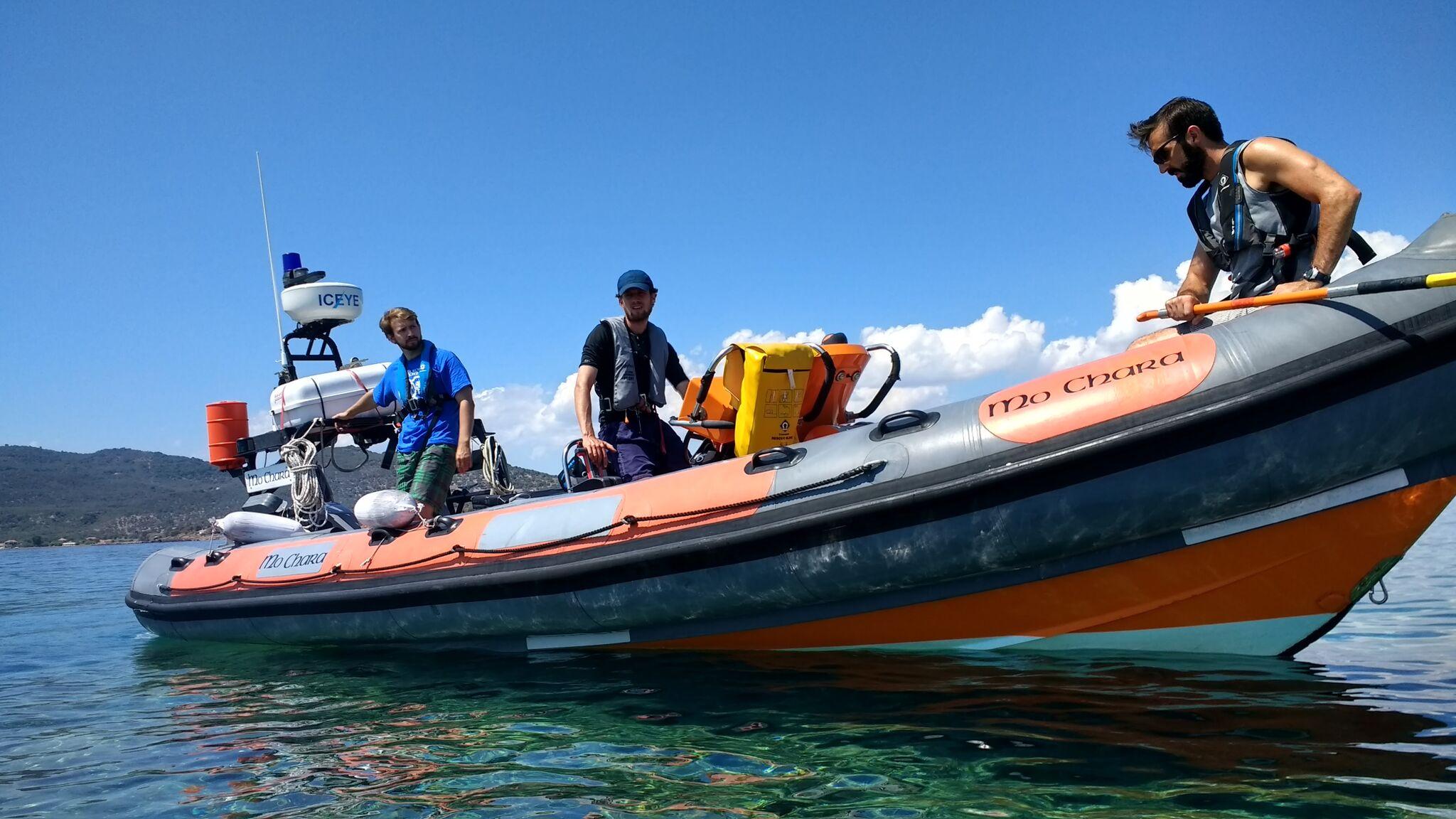
A generous donation secured the new charity an ex-RNLI Atlantic 75-class lifeboat from Portsmouth to assist the Greek coastguard and the few other rescue boats on the north shore struggling to cope with demand.
Since then, the skipper’s log book shows that 2,549 men, women and children have been helped to safety by the 20-seater boat since Refugee Rescue’s operations began.
It was an emotional day when Mo Chara, which means "my friend" in Gaelic, took to the waters of the Aegean for the first time, Jude says. “This is only the beginning,” she remembers skipper Michael Cecil joking, but he was right.
Volunteers with the necessary boat handling and lifesaving skills were beginning to get in touch via Facebook and friends of friends, all of whom needed feeding and digs to sleep in. The team quickly set about converting Beryl into an eight-seater crew van.
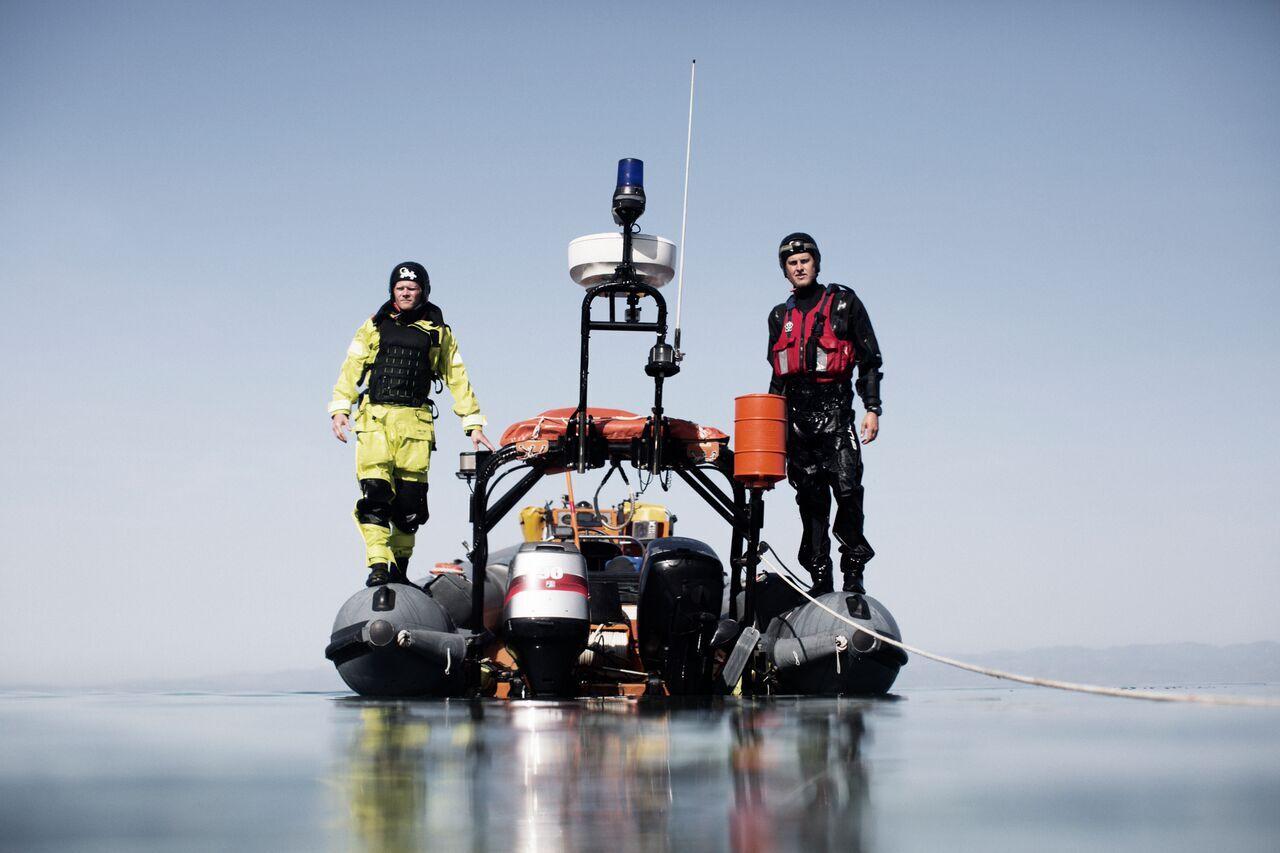
There are usually three or four crew members and a co-ordinator based on Lesbos working with Refugee Rescue at any one time. They patrol at night, when most boats come in to avoid detection, assist the Greek coastguard in search operations, and respond to distress calls. Some nights, they might catch two hours’ worth of sleep before heading out to another emergency.
The coastguard do their best, but the country's financial collapse and swingeing public sector cuts have hit the Greek emergency services hard: Mo Chara's crew report working with Greek rescue teams who don't have strong swimming skills or drysuits and wellies for working in winter weather. Many people of the island have become de-facto first responders, skipper Michael Cecil says.
“Some of the rescues undertaken by fishermen on Lesbos and some of the scenes they have witnessed should never be inflicted on anyone. The local cafe owners open their doors day and night to provide for those in need at huge costs to their businesses,” he says. The Greek islands have suffered immense environmental impact too, thanks to the mass influx of people and poorly planned settlement building.
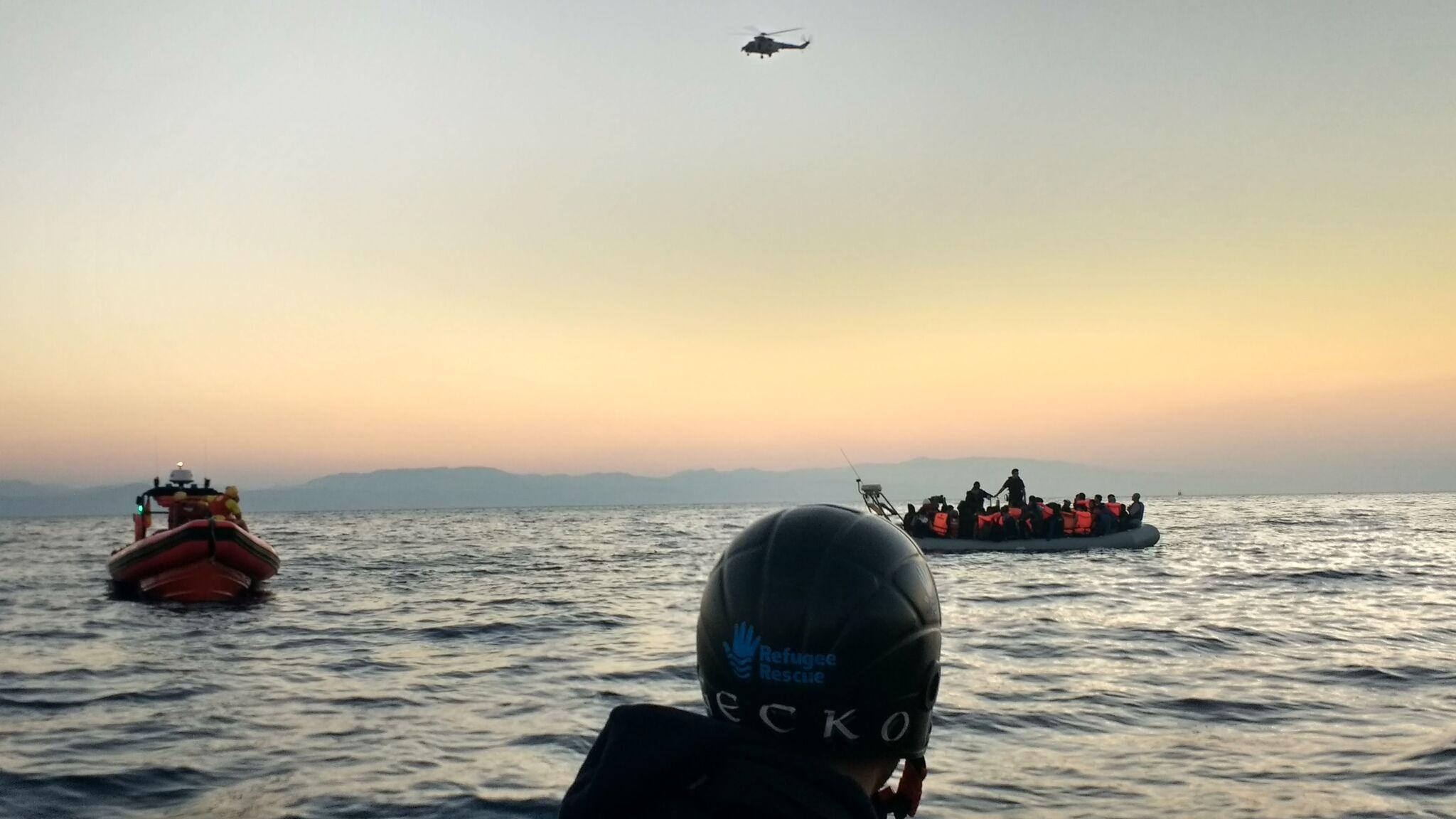
Things can go bad on rescues very fast, Richie Heard, a lifeguard from Devon who has done two stints on Lesbos for Refugee Rescue says. Each mission is different and requires quick thinking. He remembers one occasion around sunrise when the radios and alarm phones started blaring and Mo Chara arrived first at the scene when an old double decker ferry carrying 177 people was heading towards a dangerous stretch of rocky coastline.
“We managed to gain their trust, keep things calm and get a tow line attached so we could safely get the boat landed. It was ten times the weight and size of our vessel,” he says. “At one point it looked like it was going to strike the rocks and capsize.”
Mo Chara uses roughly €60 (£52) worth of petrol an hour when running at full speed during rescues, and needs constant maintenance so it meets safety requirements as an emergency vessel. When the boat first started operations in February, Jude and the other members of Refugee Rescue had raised enough in donations to keep going for around three weeks.
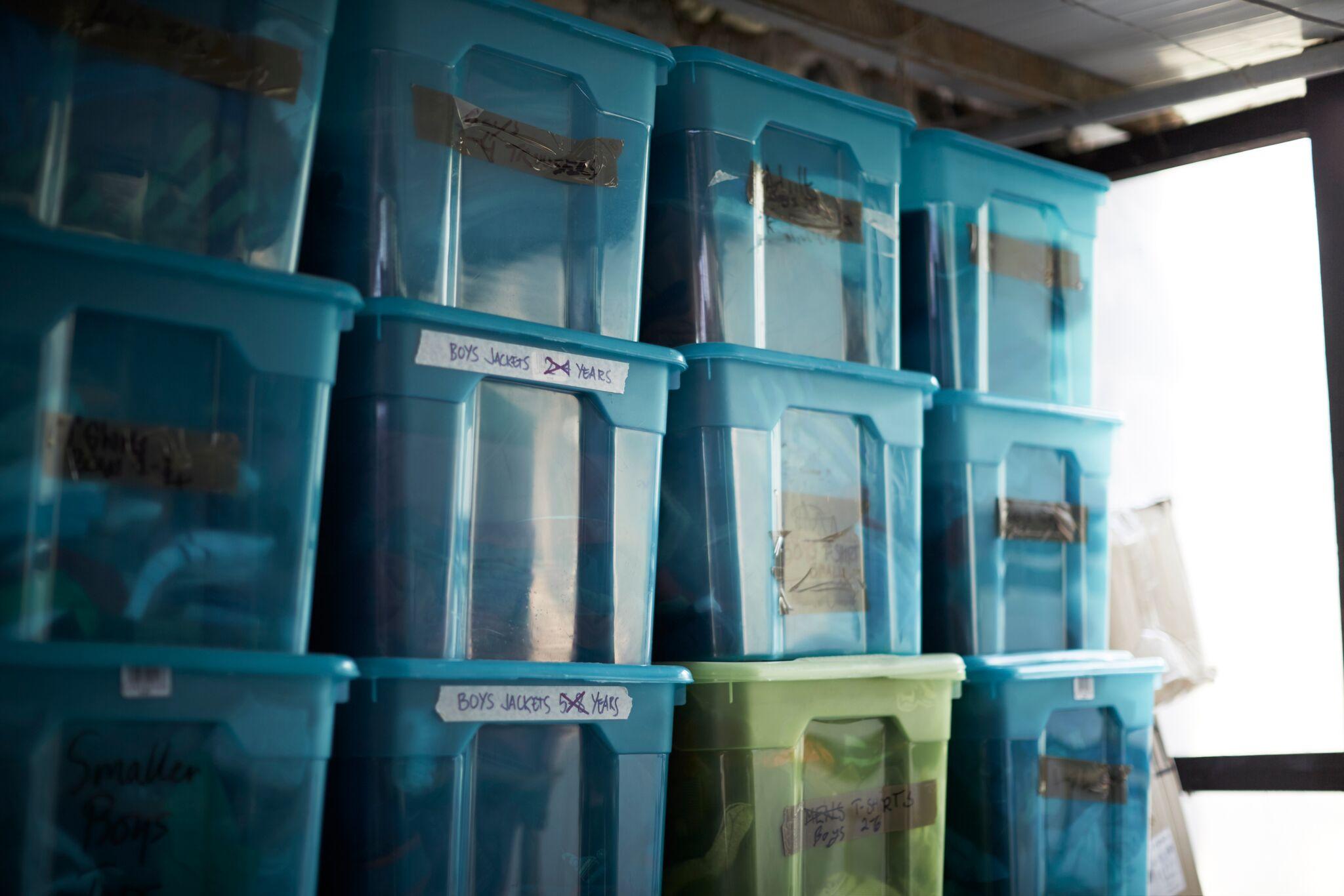
Now, thanks to constant fundraising efforts and the help of patron Jake Chapman and London-based charity Help Refugees, the team has expanded into about 25 rotating crew members. Three field coordinators, like Jude, also quit their jobs or went freelance to help out full time. It’s still been touch and go – in the summer Joby and Jude thought they’d have to suspend operations come September for lack of funds – but things are running more smoothly now and the team can focus on making Refugee Rescue sustainable.
There is still a lot of work for Refugee Rescue to do. The controversial EU-Turkey deal, in which the country agreed to retake deported Syrians in exchange for financial assistance and talks on visa-free travel, has had the desired effect: the number of people coming to Greece dropped from 123,000 in January and February 2016 to just 26,360 for the month of April, after the deal came into force.
Yet more than 100,000 people have arrived in Lesbos on illegal and often unseaworthy boats since January according to UNHCR. As Jude points out, that may be fewer than arrived last year, but it's still an awful lot of people, and the real figure, once undocumented arrivals are factored in, is likely to be much higher.

Conditions for those that make it to Greece remain dire. Government data says there are 13,000 people currently living in camps on the five main islands between Turkey and Greece, all of which are over capacity. Refugees can be trapped for months at a time before they are deported. Earlier this month, a fire at the camp in Moria on Lesbos destroyed the only shelter for some 4,000 people.
Crossing the Med hasn't become safer either. Refugees making the journey in 2016 are now more likely to drown than last year, even though the number of people crossing has gone down. Most of the reason for this is because more people, usually African, are setting off from Libya and trying to make it to Italy. At 370 miles, the voyage is incomparable to the six mile hop between Turkey and Greece. North African people smugglers are vicious, and unlike in Turkey, fear little interference from the Libyan authorities, who are distracted by their own civil war.
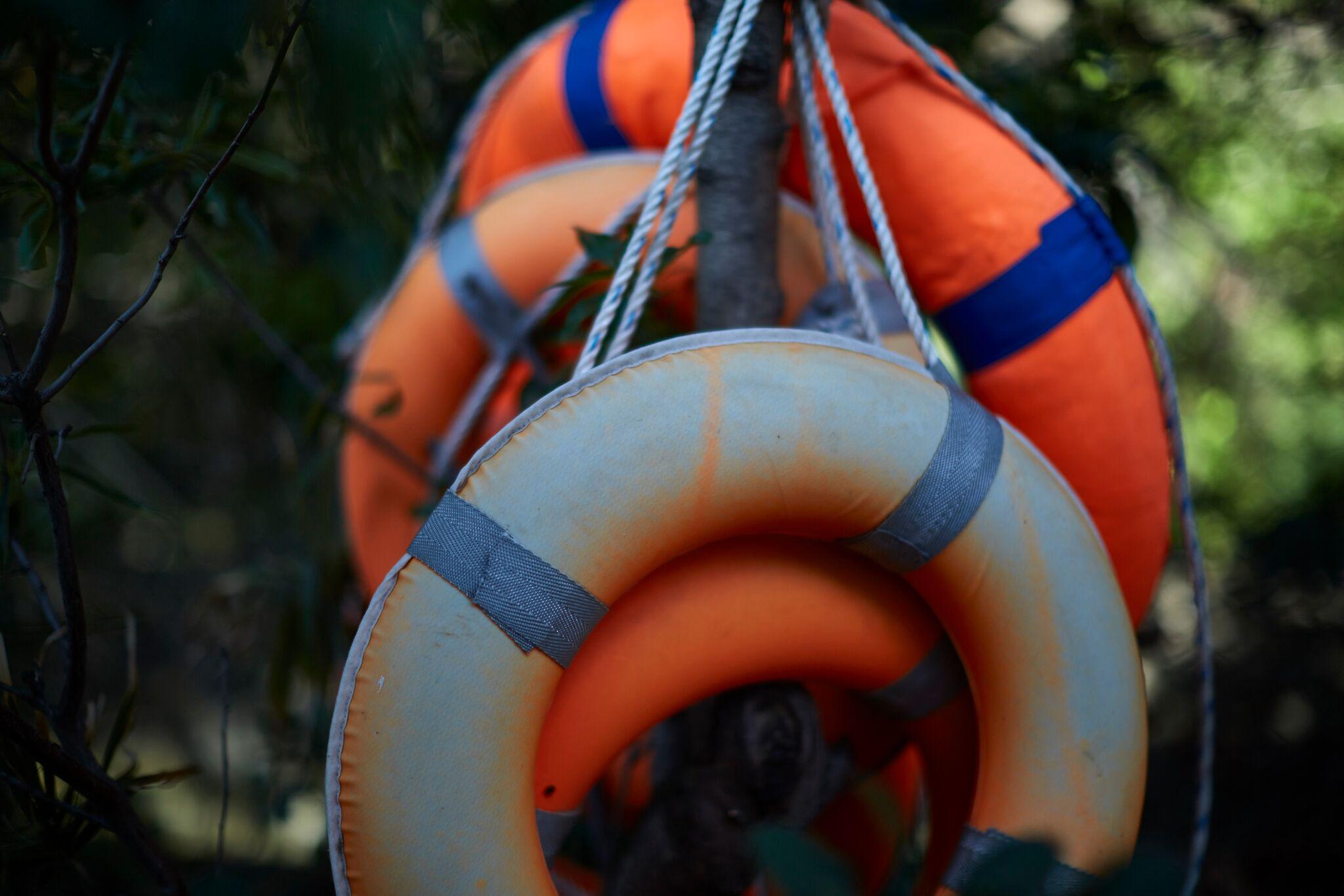
Just last week a boat carrying around 600 people capsized after leaving Egypt. At least 170 bodies were recovered, but dozens are still missing. Fishermen helping at the scene were videoed using their nets to drag up corpses of the drowned. “The sea is littered with bodies,” one of them shouts in the footage.
Mo Chara is too small to patrol the open seas of the central Mediterranean, although one coordinator, 28-year-old Max Avis who was previously based in London, is currently conducting search and rescue operations on a large boat in Libya.
On Lesbos, the nights are getting longer and colder as autumn sets in, and Refugee Rescue’s volunteers are needed more than ever. “The boat numbers are increasing as the winter is coming. I am scared, it’s so [financially] unstable,” Jude says. Despite being flat out broke after volunteering for so long, she says in retrospect nothing would be different.

“The sense of despair is eased a little with the knowledge that there are humans who want to help,” she says. “Refugee Rescue has impacted on my life – like many other volunteers I have hardly seen friends and family. But the 25 or so volunteer crew that have worked on Mo Chara so far are the most hard-working, inspiring, skilled and passionate people I have ever met.”
In turn, the team themselves say they have learned from the people they’ve met on the water. Max Avis recalls a cold, rough night in March out on patrol when they heard screams coming from the darkness. “We prepared for the worst,” he recalls. As Mo Chara approached the sound, however, it became apparent the 50 or so people on board were actually singing in happiness.
“That night showed me the strength of a group of people, the importance of unity in the face of adversity,” he says. “The situation is hard to convey. You can’t shut your eyes and pretend to be blind… reading about the crisis didn’t prepare me for the reality. The closer you get to some things the less sense they make.”
For more information on volunteering opportunities or to donate to Refugee Rescue’s work, visit www.refugeerescue.co.uk
Meet the crew:
Name: Rob Weare
Age: 41
From: Devon
Occupation: Photographer, RNLI helmsman
“I have seen overloaded boats where some people chant with happiness and others are in deep shock. It still deeply affects me thinking back to those situations and seeing people with so little who are ready to risk so much with their young families. It’s really heartbreaking.”
--
Name: Eleuthera du Breuil
Age: 30
From: London
Occupation: Paramedic
“The look of relief on people’s faces as they realised they were in Europe and safe is amazing. I knew that relief would diminish, however, when they realised how long they would be in the camps. Working on London ambulances I have seen some desperate people but until I held the tiny baby that had been thrust into my arms by a traumatised mother from a leaking dinghy I don't think I had ever understood true desperation.”
--
Name: Alex Michie
Age: 26
From: London
Occupation: Economist
“One thing that caught me by surprise was the tiny size and immense beauty of the village where we were based, and where many of the refugees land. Gorgeous, glorious, and happy weddings taking place on a near daily basis – and so too, tragic wailing landings of refugees. There was a lot of life’s extremes crammed into a tiny place.”
--
Name: Adam Cantwell-Corn
Age: 26
From: Bristol
Occupation: Co-founder of The Bristol Cable media co-op
“We found about 40 people on the shore beneath a pretty sheer cliff. We start to identify who we can deal with – their state of calm, which language, groups with an English speaker who can communicate to others. “Where you from, brother?” I say to a guy in a New York baseball cap. Senegal. “Na'nga def” I say – by chance I know one word of Wolof. They look shocked but happy. “I’m from Senegal too,” I say, shining the light on my white face. They laugh. Immediately,it's a group of four I can work with. Next, Iranian. Then Syrian. OK good, a few ill-pronounced words. And so on.
"I have to yank a mother of about 60 in a hijab over the side. Neither of us care for social norms. One Afghani asks how many hours they will spend in the processing detention camps. I don't know, I say. I haven't got the heart to say it could be up to five months. It's not over yet for him."
--
Name: Richard Heard
Age: 32
From: Devon
Occupation: Lifeguard, tourism developer
“My motivation was simple: to make a positive impact on the world, and not sit back and watch it happening on TV. I hope that if I was ever in desperate need then someone else would drop what they are doing and help me.”
--
Name: Konstantina (Deena) Sypsi
Age: 32
From: Greece
Occupation: Worked in advertising before volunteering full-time
“There have been incidents, like winter rescues in deep freezing water, that made me really proud of being part of this team, but what’s most important is that Refugee Rescue never limit themselves to providing search and rescue skills. They always take it a step further with donations to camps, support to volunteers and fearlessly raising their voices against violations of human rights.”
--
Name: Bill Drexel
Age: 23
From: Texas
Occupation: Student
“The first thing that struck me is that the real heroes are the villagers of Skala, where we were working. We were giving up time and money, perhaps, but they had effectively turned their village into a refugee reception centre while stomaching the severe economic repercussions that their tourist-based economy has suffered. When the crisis started, they were the first ones on the boats, and sacrificed a tremendous amount.”
--
Name: Michael Cecil
Age: 46
From: Northern Ireland
Occupation: Skipper and mechanic
“Imagine yourself, as I do, living on the north coast of Ireland and something similar happened there, how would you cope? Would you be able to give all you can to people in need 24 hours a day, little or no state support and no end in sight to the situation? I will return to Lesbos, either soon as a volunteer or later as a guest: in the very short space of time that I was with them my life and my outlook on life has been changed forever.”
--
Name: Max Avis
Age: 28
From: London
Occupation: Previously development work, now a coordinator for Refugee Rescue
“The closer you get to some things the less sense they make. Flimsy boats full of families, crossing in foul weather when the ferry costs €10 (£9). Understanding teh cause doesn’t help when you're lifting an infant out of a dinghy at sea. Recently, Jude emailed me to ask if I knew anyone who could act as coordinator out there. I said I would. I never really faced the decision, I just took each necessary step, I quit my job, packed my room, assembled a crew, etc... and then I was back on the boat.”

Join our commenting forum
Join thought-provoking conversations, follow other Independent readers and see their replies
Comments